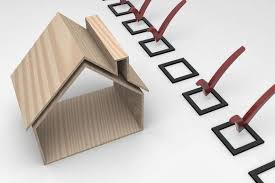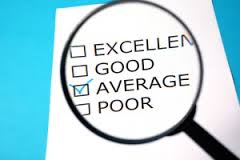1. Do your homework. An hour of your time can save you hundreds of hours (and dollars) of heartache. Some things you should know when starting your home inspector search.
– Home Inspections are not standardized.
– All home inspectors are not created equal.
– The home inspection industry in Virginia is NOT regulated and does not require licensing.
– You get to pick the inspector who you feel will represent your best interest. Your inspector is your personal expert that you pay to learn everything about the home you are hiring s/he to inspect.
– You must get the home inspection before the inspection contingency period is up.
– Most purchase offers are standardized and become a ratified contract when both parties agree to the terms which normally includes an inspection contingency..
– Almost all contracts contain a property inspection contingency addendum (PICA) meaning the contract can be cancelled during the inspection contingency period.
– When buying a house you typically have a certain number of days from ratification to get the inspection completed. Usually 7-10 days. This is called the inspection contingency period. It’s crucial you get the inspection done during this period. If you can’t then you should get an extension or consider withdrawing from the purchase contract.
– If the inspection results are not satisfactory to you or even if you just decide you just don’t want the house, you may withdraw from the contract without excuses and without penalty during the contingency period.
– Find you home inspector in advance. Be prepared by reading the list below and having a good home inspection company in mind so you can get it scheduled as soon as your contract is ratified.
2. Reputation – A good inspection company or inspector will have a good reputation on the internet.
– Check consumer reviews across all platforms: Angies’ list, Google, Yelp, BBB, etc.
– A high number of reviews indicate they are in demand and have lots of experience.
– Are the reviews consistently positive
– Are the reviews genuine and submitted by actual customers. Be leery of reviews generated by review mills
3. Inspection reports – Look at the inspectors actual inspection reports.
– Its good insight into the detail and thoroughness of his/her inspection process and abilities.
– Is it a checklist report or full narrative?
– Beware of fake display or promotional sample reports.
– You can usually tell by the generic address and name info provided.
– Some software companies even provide sample reports to help sell their software to inspectors.
– Is it the actual inspectors report or just a representation?
– Are there numerous, detailed and annotated photos? Not some few, hard to see thumbnails.
– Is the report full of disclaimers, limitations or omissions of systems and components?
– Assuming safe conditions, do they actually walk roofs and fully enter crawlspaces?
– Do they do a random sampling of faucets, fixtures, outlets, windows, electrical devices or do they check 100% of everything possible?
4. Recommendations and referrals – If your real estate agent highly recommends against using the inspector you choose and insist you use their inspector. Either the inspector you chose is really bad or really good. It depends on how honrable and professional your agent is. Some inspectors are really bad and should be avoided. Some inspectors are really good and are viewed by some unscroupulous agents to be a challenge to closing their sale. They are afraid a good inspector will rock the boat but as a buyer that may not mean smooth sailing after you acquire the property. Some agents are really good and want the best inspection for their client and will recommend the best inspector. You will have to sort this out.
– Ask friends, co-workers, neighbors for a good referral. (or the ones they should avoid)
– Beware of the agent who insists you use “my guy”. That inspector may indeed be his/her guy. Find your own guy.
– Read the article Should I use my agents home inspector
5. Pricing – Beware of cheap prices. Most inspectors know their own worth. Most people can’t afford a cheap inspection. The sweetness of a low price is temporary while the sting of a cheap inspection last forever.
– A good inspection will average $350-$400.
– A good inspection will take 2.5-3 hours
– A good inspector will spend 2-3 hours on each report.
6. Education and experience – The days when retired contractors or handy Andy takes up home inspections as a supplemental income are fading away. The home inspection industry has evolved to meet the demands of technically advanced construction and designs that require a vast knowledge of homes systems old and new. A great inspector will be a full time specialist in their craft and will have advanced education and experience in all aspects of modern building systems and those of prior generations and the effects of aging. The younger generations are now entering the profession as it has become as a viable career choice. Typically a good inspector will have had.
– A 2-4 year college degree in engineering or building science
– 5 years working in the building / contracting trades
– 2 years inspector apprenticeship under a master inspector
– 3-5 years as an inspector
– Completed at least 1000 independent inspections.
– Although prior experience in the building and contracting trades alone does not equate to being a great inspector, most experts in the industry will agree that inspectors who don’t have that base experience will be at a grave disadvantage that eventually cause them to miss something major.
7. Credentials
– Virginia Certified Inspector
– Virginia does not require licensing and does not regulate the home inspection profession. The Virginia Department of professional occupation and regulation (DPOR) has a voluntary program whereas Home Inspectors can be Virginia certified and advertise such if they show proof of minimal classroom instruction, experience and proof of E&O insurance, A high school diploma and No felony convictions.
– American Society of Home Inspectors. (ASHI) ASHI certified Inspector (ACI)
– ASHI is a national not-for-profit professional association that provides Inspector certifications, requires continuing education, requires adherence to inspection standards of practice and ethical practices, requires passing the national Inspection Examination and requires third party verification of reporting practices and adherence to their standards of practice.
– “Store bought “credentials and certifications. Beware of credentials that come from “for profit” websites. These types of businesses profit for the sales and marketing of services and products to home inspectors. The more inspectors they have, the better their profits. They also sell certificates and credentials for a fee and completion of minimal online course work.
8. Insurance – Does the inspector have general liability, errors and omissions insurance (E&O)?
– Ask to see a copy f their certificate of insurance.
– This may protect you if the inspector has an accident during your inspection and it protects you against errors and omissions if the inspector missed or failed to report a major defect.
9. Equipment and tooling – The most important tool of any inspector is the one right between their ears. But even the most experienced and intuitive inspector needs some specialized equipment to help them do a good job. Some of these tools are expensive but the savvy and successful inspector will make that investment because they know it will help them and their customer.
– Computer, laptop, Tablet. You would expect that in this day and age all inspectors would create computer generated reports. Not so fast, there still are some dinosaurs out there using hand written paper reports. That’s horse and buggy in to days fast lane of professional inspecting.
– Cameras. It’s vital to collect photographic documentation and evidence of the inspection.
– Digital cameras are used to photograph everything from the entire house to the smallest data Label. Some inspectors will use them to see things in places they could not otherwise fit their head and eyes such as inside a chimney, inside the crack of a wall, Inside the ductwork, behind an appliance, etc.
– Infrared camera. These are cameras used for thermal imaging and can reveal defects not visible to the naked eye such as internal water leaks inside the wall, Missing insulation in a vaulted ceiling, leaky ductwork in an attic, overheating terminals in a service panel, built in heat coils in the ceilings or floors. The list goes on. These cameras are expensive but a dedicated and successful inspector will make that investment.
– Moisture detection and humidity meters. Detects and records harmful moisture levels in any materials from the crawlspace framing to the ceiling gypsum.
10. Web presence – A well established inspector or company with have a good web presence. Moon lighters, part timers or inspectors who rely on real estate agent leads typically do not need or have a good web presence.
– Google them and see what comes up.
– Check out their website. Is it informative or just a generic web brochure?
– Do they interact with the social sites such as Facebook, Twitter, and Google+? Great inspectors want to stay plugged in to the public and their consumer base.
~~~~~
Copyright 2015. No part of this article may be reproduced in any form without written consent of the author


